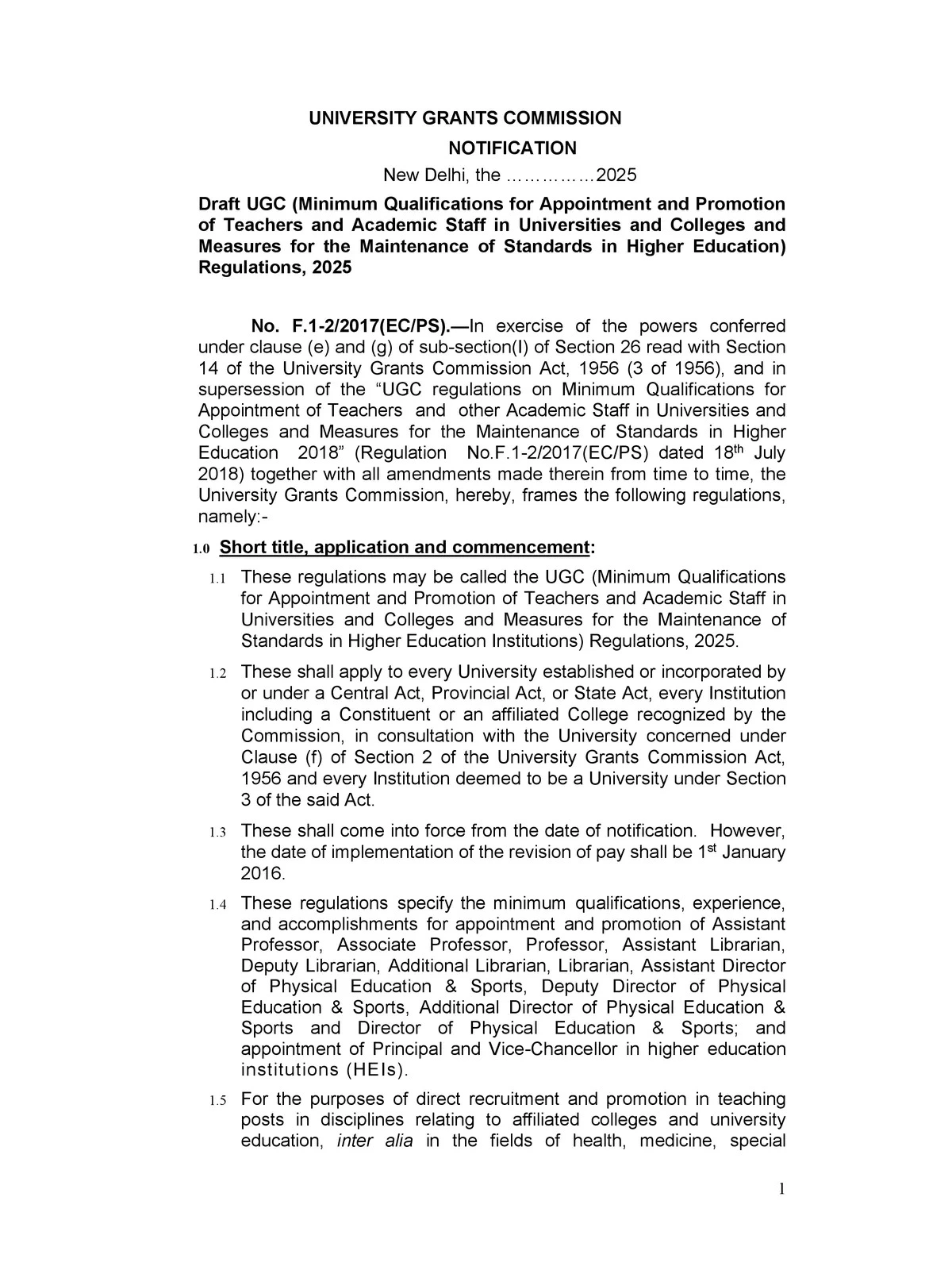
Draft UGC Regulations 2025
Draft UGC (Minimum Qualifications for Appointment and Promotion of Teachers and Academic Staff in Universities and Colleges and Measures for the Maintenance of Standards in Higher Education) Regulations, 2025
The document outlines the Draft UGC Regulations, 2025, specifying qualifications, procedures, and standards for the appointment and promotion of teachers, academic staff, and key administrators in Indian universities and colleges. Below are the main highlights:
1. Objective
- To establish minimum qualifications and measures for maintaining academic and administrative standards in higher education institutions (HEIs).
2. Applicability
- Applies to all universities and affiliated colleges under the UGC Act, 1956, and institutions deemed to be universities.
3. Key Provisions
Qualifications and Recruitment
- Defines qualifications for Assistant Professors, Associate Professors, Professors, Librarians, and Directors of Physical Education and Sports.
- Emphasizes the importance of Ph.D. degrees for higher positions.
- Details conditions for direct recruitment through all-India advertisements and selection committees.
Career Advancement Scheme (CAS)
- Provides guidelines for internal promotions based on academic achievements, research contributions, and experience.
Special Provisions
- Encourages teaching and research in Indian languages and traditional art forms.
- Introduces criteria for promoting academic staff through notable contributions like digital content creation, community engagement, or patents.
Principal and Vice-Chancellor Appointments
- Specifies qualifications, tenure, and selection processes for principals and vice-chancellors.
- Requires appointments through transparent selection committees.
Professor of Practice
- Enables hiring professionals from industries for teaching and research roles, capped at 10% of total sanctioned posts.
Physical Fitness for Sports Roles
- Stipulates fitness tests for Physical Education and Sports roles, with age-specific criteria.
4. Compliance and Enforcement
- Institutions violating these regulations risk losing recognition, UGC funding, or the right to offer degree programs.
5. Consequences of Non-Compliance
- Penalties include being barred from UGC schemes, suspension of degree programs, and removal from UGC’s list of recognized institutions.
This draft regulation aims to modernize academic standards, enhance transparency, and integrate innovation and inclusivity into Indian higher education. Let me know if you’d like a detailed section summarized further!